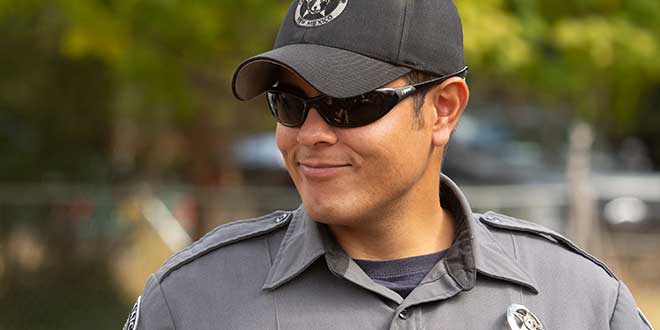At educational events, I typically ask attendees, “What does the Game and Fish Department do?” While the Department’s duties are extensive, the most common answer is “YOU CATCH POACHERS.”
Conservation officers have long been the backbone of the agency. They are not only out there to ‘catch poachers,’ but have a long list of other duties.
New Mexico’s first territorial game warden was appointed in 1903. There was no school of wildlife management, no state fish hatchery system and few, if any, Rocky Mountain bighorn sheep or elk in New Mexico. A lot has changed in the last 118 years. Formal education is now required, technology has grown in leaps and bounds, demographics of hunters and anglers have shifted and wildlife populations have evolved. Conservation officers continue to be the front line and the face of the New Mexico Game and Fish Department. They work days, nights, weekends and holidays to conserve New Mexico’s wildlife for everyone’s benefit. Today, when fully staffed, there are over 80 officers in the field, reaching some of the most remote communities in New Mexico.
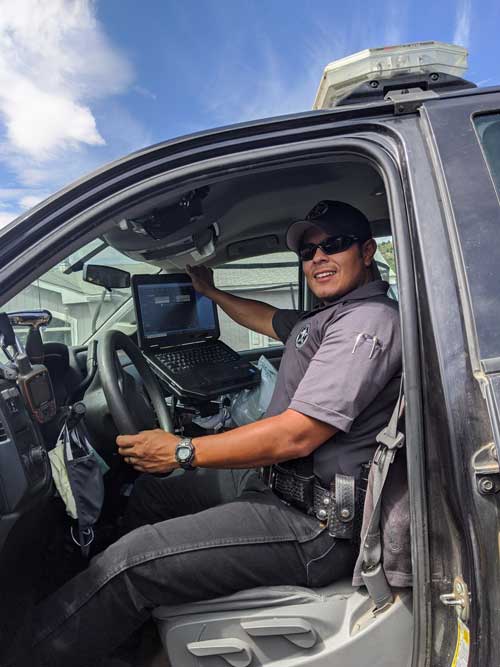
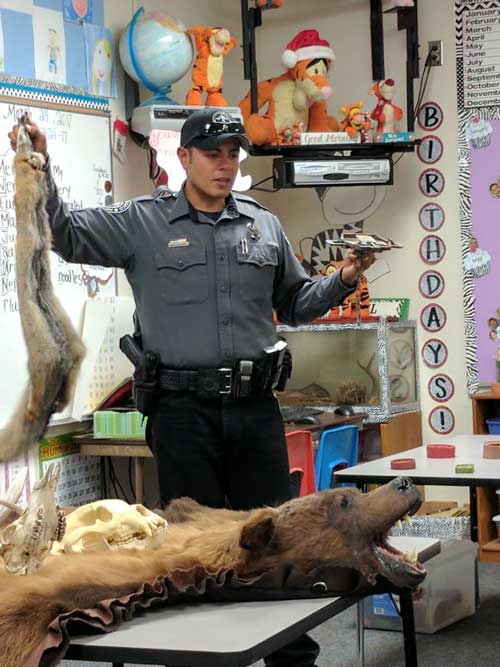
For this month’s #TeamNMGameandFish spotlight, we are featuring Corporal Adan Jacquez, the Glenwood conservation officer.
Adan has been with the Department for eight years. While every day looks a bit different, conservation officers enforce game and fish laws, handle wildlife complaints, introduce conservation and the benefits through classroom and public programs, teach hunter education and assist the wildlife and fisheries divisions with surveys. As a Corporal, Adan is also a field training officer helping to prepare new officers by providing hands-on, in the field training.
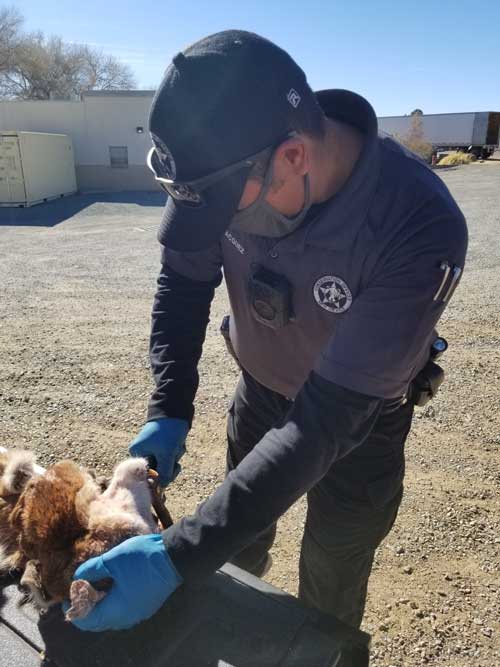
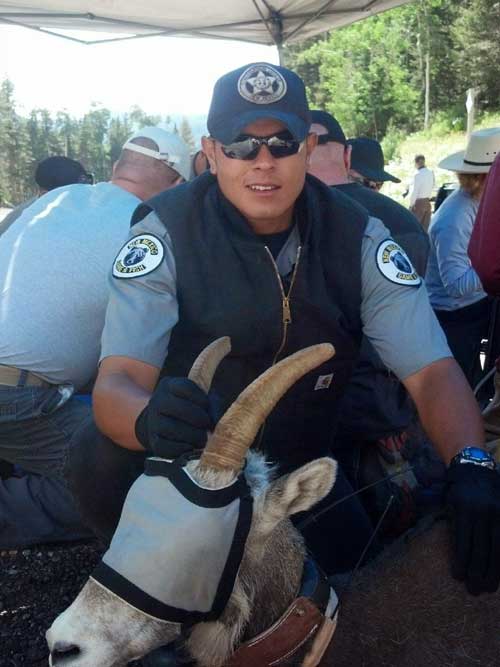
I’ve wanted to be a Game Warden since I was about eight-years-old. One time, while in the field with my brother and dad, I saw a helicopter transporting bighorn sheep by sling load. I asked my big brother what that was. He replied it is the Game and Fish. Since then, I have wanted to be a part of this agency. ?What is the most exciting part of your job?
I really enjoy all aspects of the job! Like all jobs, there are ups and downs in this profession, but the ups outweigh the downs. By far, the most exciting times that I can recall happen when I’m dealing with a large live predator such as a black bear or cougar. At times, we are asked to remove or relocate these critters from a situation. While doing this, the job can get exciting.
Other times, it can be quite exciting to apprehend an individual who has had a negative impact on wildlife. Individuals who disregard the law, by using unlawful manner and methods to harvest protected critters, take away from lawful hunters as well as people who enjoying seeing wildlife on the landscape. Catching and convicting these types of people is a win for the Department, New Mexico’s wildlife and the people in New Mexico.
?What is your favorite part of working for the Department?I don’t really have a specific duty that is my favorite, but I do enjoy the fact that my office is in the woods. Not very many people can say that! ?What are your hobbies, or what do you do when you are not at work?
Besides hanging out with my wife and kids, I enjoy doing many things. It depends on the season, but you can find me hunting and fishing in the fall and winter seasons. During summer, I can be found camping with my family in the backcountry and in the spring, you will find me searching for elk and deer antlers in their wintering grounds. ?What are some of the projects you will work on over the next year or several years?
At the current time, many projects have been put on hold. Prior to the COVID pandemic, I did have plans to start an event for the Grant County area that would have been similar to the big Outdoor Expo in Albuquerque, but on a much smaller scale. These events are great to expose folks who are unfamiliar with the Department and what we stand for. It can also capture people’s attention and draw them into participating in hunting, fishing and trapping activities. This is something I would like to initiate in hopes of capturing the attention of people who live in this area. ?What else do you want the public to know about you or your job?
This job is not for everyone. You have to be independent and willing to work solo. At times, you have to work alone and at all hours of the day and night, with your closest backup at least an hour away. You have to be able to have a conversation with anyone and realize that a dangerous situation can arise from the friendliest of contacts. Although we deal with lawful sportsmen most of the time, it is possible to encounter a dangerous person who have may negative intentions. Because of the remoteness, conservation officers must control the situation alone, with no backup. ?What is the most common question you get about your job, and how do you answer it?
The most common question I get is “Where are all of the game?” I usually respond with common areas I see that game animal and usually give some common tips to locating a person’s targeted species. ?If someone is looking to get a career with Game and Fish in the future, what advice would you give them?
When someone is inquiring how to become a conservation officer, I tell them that this job is not what they expect and that they should make arrangements to do a ride-a-long with an officer. That way a person can see more or less how a typical day goes. They can also ask any questions they have and get a better understanding of what we as conservation officers do.
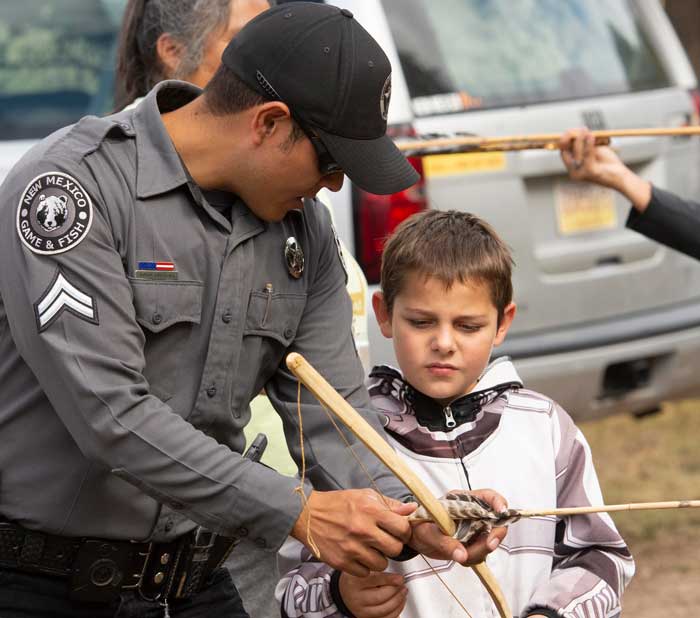
 New Mexico Wildlife magazine Conserving New Mexico's Wildlife for Future Generations
New Mexico Wildlife magazine Conserving New Mexico's Wildlife for Future Generations
